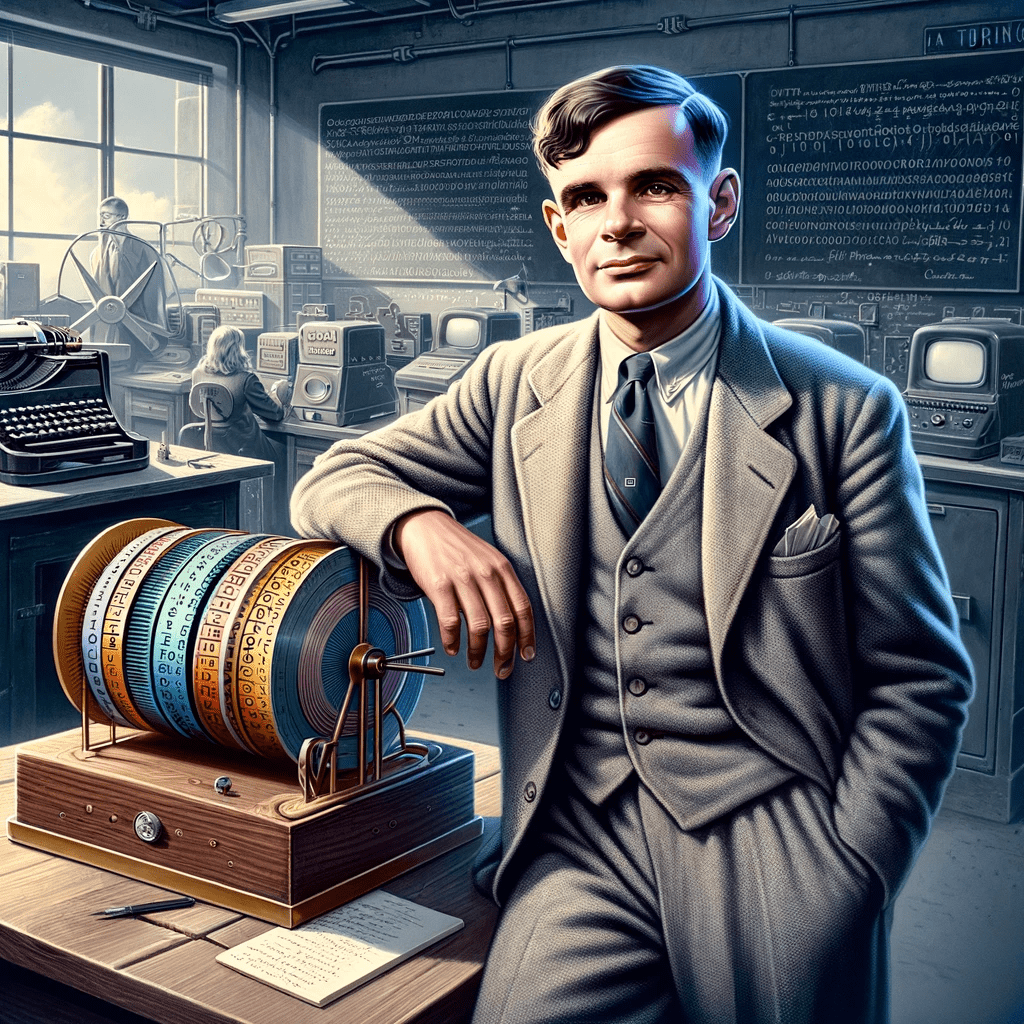Today’s lesson goal: Understand Alan Turing’s contributions to computer science, his life, and his lasting impact.
Alan Turing, often hailed as the father of modern computer science, made profound contributions that have shaped the way we understand and interact with technology today. Born on June 23, 1912, in London, Turing was a mathematician, logician, cryptanalyst, and theoretical biologist. His work laid the groundwork for the modern theory of computation and algorithms.
Early Life and Education: Turing showed signs of genius from an early age, displaying a fascination with numbers and scientific principles. He studied at King’s College, Cambridge, where he was awarded a first-class honours degree in mathematics in 1934. Turing became a fellow of the college the following year.
The Turing Machine: In 1936, Turing published his seminal paper, “On Computable Numbers, with an Application to the Entscheidungsproblem.” This paper introduced the concept of the Turing machine, an abstract device that manipulates symbols on a strip of tape according to a set of rules. Despite its simplicity, the Turing machine can simulate the logic of any computer algorithm and is a central object of study in the theory of computation.
World War II and Cryptanalysis: During World War II, Turing played a pivotal role in breaking the German Enigma code, significantly contributing to the Allied victory. He worked at Bletchley Park, Britain’s codebreaking center, where he developed a series of techniques for speeding up the breaking of German ciphers, including the development of the Bombe, a machine that could decipher Enigma-encrypted messages.
Post-War Work and the Turing Test: After the war, Turing worked on the design of the ACE (Automatic Computing Engine), one of the earliest stored-program computers. He also proposed an experiment known as the Turing Test, a criterion for determining whether a machine is capable of human-like intelligence. In this test, a human interrogator would try to distinguish between a human and a machine based on their replies to questions.
Legacy and Recognition: Despite his monumental contributions, Turing’s life was marred by legal troubles due to his homosexuality, which was then criminal in the UK. Tragically, Turing died in 1954 at the age of 41, under circumstances that remain somewhat mysterious.
Today, Turing is celebrated not only for his scientific genius but also as a symbol of the struggle for LGBT rights. He received a posthumous royal pardon in 2013, and his life and work have been the subject of various books, plays, and movies.
Conclusion: Alan Turing’s work forms the foundation of computer science and has had a profound impact on how we live today. His vision of a universal machine laid the groundwork for the modern computer, and his work in artificial intelligence continues to inspire researchers. Turing’s legacy is a testament to the power of intellectual curiosity and innovation.
For more in-depth information, please visit the following resources:
- Wikipedia article on Alan Turing
- YouTube video on Alan Turing
- The Turing Digital Archive, for a comprehensive collection of his works and related historical material.
